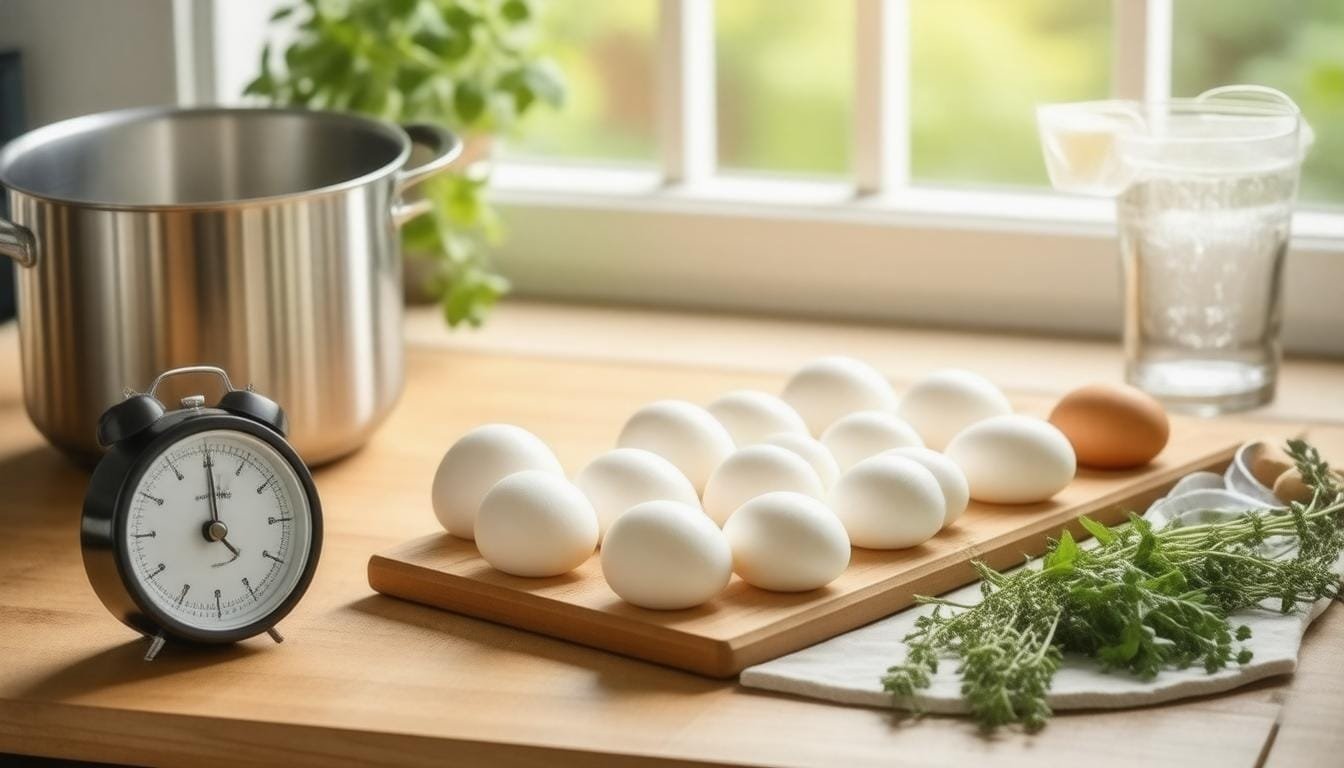5 Simple Steps to Achieve Perfect Boiled Eggs Every Time!
Are your boiled eggs turning out rubbery or, worse, still gooey when you crack them open?
Let’s face it—nobody wants breakfast to be an unexpected game of texture roulette.
In today’s post, we’ll dive deep into the science of boiling eggs using a method called periodic cooking, crafted to cook the egg white and yolk without overdoing it.
It sounds fancy, but don’t worry; we’ll break it down into five actionable strategies that you can start using today to achieve perfectly boiled eggs.
From needing precise temperature control to knowing the difference between refrigerator-cold and room-temperature eggs, we’ll cover all the essentials.
Plus, we’ll weigh the pros and cons of this method compared to your usual techniques.
So grab your thermometer and let’s see if this egg-spert method is worth the effort—or if you should stick to your good old frying pan!
Try Hostinger Webhosying get a website as low as $3.99!

Key Takeaways
- Periodic cooking allows for precise control of egg textures, achieving a consistent gel-like yolk and tender white.
- The process requires careful attention to temperature and timing, utilizing both boiling and warm water in alternating cycles.
- Despite the improved results, the complexity of this method may not be justified for everyday cooking compared to simpler techniques.
Understanding Periodic Cooking and Its Benefits
Understanding Periodic Cooking and Its Benefits
Ever wondered how to achieve the perfect boiled egg without the fear of a rubbery white or chalky yolk?
Let’s dive into periodic cooking, a scientific method that promises remarkable results by carefully controlling egg temperatures during cooking.
Authored by Allie Chanthorn Reinmann, this technique involves alternating between boiling (212°F) and warm (86°F) water over a total of 32 minutes.
Picture this: you start with your eggs in boiling water for just two minutes, then switch to warm water, and repeat this cycle eight times.
It sounds like an egg-lover’s dream!
Why Go Through All This Trouble?
The crux of periodic cooking lies in temperature precision, ensuring the yolk remains gel-like while the egg white sets perfectly without becoming rubbery.
Using two pots, a thermometer, and a note-taking strategy, precision is key for egg enthusiasts looking for culinary perfection.
Reinmann’s experiments show that cold and room-temperature eggs yield nearly identical textures.
While the velvety yolk is praised, the author muses whether the effort for such subtle differences is truly worth the hassle for everyday cooks.
Final Call
In the end, while periodic cooking is fascinating, Reinmann opts for the simplicity of frying and scrambling, proving sometimes less is more in the egg-cooking game.
So, next time you crack an egg, ask yourself: Is it really worth the scientific fuss?
Grab your frying pan and whip up your favorite dish, because in the kitchen, joy trumps complexity any day!
Comparative Analysis: Periodic Cooking vs. Traditional Methods
Comparative Analysis: Periodic Cooking vs.
Traditional Methods
When it comes to boiling eggs, have you ever been torn between chasing after that perfect texture and sticking to good ol’ traditional methods?
Periodic cooking, an innovative technique detailed by Allie Chanthorn Reinmann, suggests a meticulous approach involving precise temperature control.
The goal?
To create a perfectly cooked egg with a creamy, gel-like yolk while avoiding the rubbery fate of overcooked whites.
This method requires juxtapositions between boiling and warm water, demanding additional tools like thermometers and strict timing.
What’s impressive is Reinmann’s findings: both cold and room-temperature eggs yield similar results, making the technique intriguing yet time-consuming.
As you consider your cooking preferences, remember that while consistent results are alluring, sometimes the simplicity of frying or scrambling might just bring more joy to your kitchen escapades, rather than scientific precision.
Please Support Us Across All Platforms! Click Here to explore and follow us on our other platforms. Your support helps us grow and continue providing great content!


















